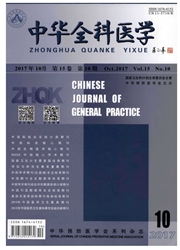

 中文摘要:
中文摘要:
目的探索基于授权理论的社区老年糖尿病患者家庭访视护理模式对患者的授权能力、自我管理行为及空腹血糖控制水平的影响,为社区糖尿病家庭访视护理提供新的理论依据和实施方法。方法在2014年5—10月宁夏银川市嘉园、塞上骄子2个社区卫生服务站中各随机选取67例符合纳入标准的老年糖尿病患者作为研究对象,并将研究对象根据所在社区分为干预组和对照组。干预组开展为期6个月的基于授权理论的家庭访视护理模式;对照组实施常规家庭访视护理。采用中文版糖尿病授权量表(CM-DES)、糖尿病自我管理行为量表(DSCS)及空腹血糖值作为评价指标,分析基于授权理论的家庭访视护理模式对社区老年糖尿病患者授权能力、自我管理行为及血糖控制的影响。结果干预前,2组患者授权能力各维度得分及总分、自我管理行为各维度得分及总分间比较差异均无统计学意义(均P〉0.05);而家庭访视护理干预后,干预组社区老年糖尿病患者授权能力各维度得分及总分、自我管理行为各维度得分及总分均明显高于对照组,差异有统计学意义(P〈0.05);且家庭访视护理干预阶段的第5个月至干预结束后,干预组患者空腹血糖控制水平优于对照组(P〈0.05)。结论基于授权理论的社区老年糖尿病患者家庭访视护理模式可提高患者的授权能力,并能有效改善患者的自我管理行为及空腹血糖水平,不失为一种有效的社区糖尿病随访管理方法。
 英文摘要:
英文摘要:
Objective To evaluate the effects of home visiting based on empowerment theory on empowerment, self-management behaviors and the glycemic control in community-dwelling elderly diabetic patients,in order to provide a new theoretical and implementation method for home visiting in community-dwelling elderly diabetic patients. Methods The elderly patients with diabetes that meet the criteria for inclusion were randomly recruited from two community health service stations in Yinchuan city and were divided into control group(n =67) and intervention group(n =67) according to their geographic setting. The control group got routine home visiting, while the patients in the intervention group received a sixmonth home visiting based on empowerment theory. The patients were investigated with China Mainland-Diabetes Empowerment Scale(CM-DES) and Diabetes Self-care Scale(DSCS) and the fasting plasma glucose were measured before intervention and six months after intervention. Results There were no significant difference in the scores of empowerment and self-management behaviors between the two groups before intervention( P 〉 0.05 ). While after intervention, the scores of empowerment, self-management behaviors as well as their dimensions in the intervention group were all significantly higher than those in the control group( P 〈 0. 05 ). From the five months of the intervention to the end of intervention, the glycemic control in the intervention group were significantly better than that in the control group ( P 〈 0. 05 ). Conclusion Home visiting based on empowerment theory as an effective management and follow-up method for diabetes in community can not only enhance the empowerment, but also improve self-management behaviors and glycemic control of the elderly diabetic patients.
 同期刊论文项目
同期刊论文项目
 同项目期刊论文
同项目期刊论文
 期刊信息
期刊信息
